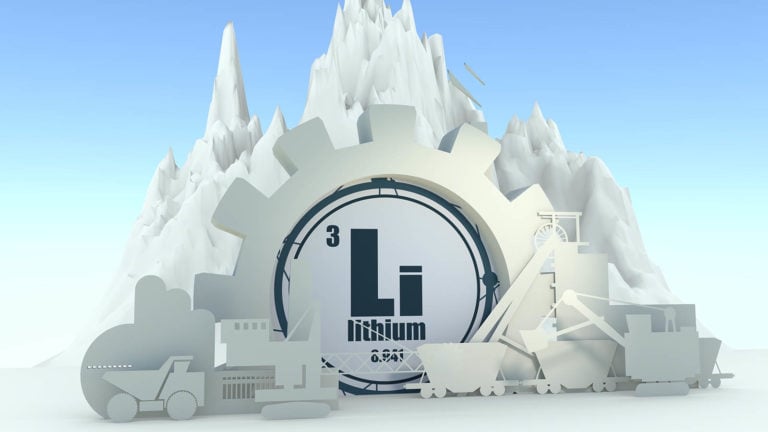Amid another quiet session in the equities market on Tuesday, lithium stocks enjoyed a substantial boon thanks to renewed interest. Albemarle (NYSE:ALB), a major U.S. lithium producer, issued a $3.7 billion preliminary offer to acquire Australia’s Liontown Resources (OTCMKTS:LINRF). However, Liontown rejected the offer.
Nevertheless, the refusal didn’t stop LINRF stock from skyrocketing to nearly 66% in early afternoon trading. Likewise, other lithium stocks — including regional rival Pilbara Minerals (OTCMKTS:PILBF) – jumped conspicuously as well. In addition, Canada-based Lithium Americas (NYSE:LAC) popped up by over 3%.
Since the pandemic-fueled doldrums of 2020, lithium stocks surged higher into 2022. However, the dramatic rise of global inflation last year — along with central banks’ monetary tightening to curb soaring prices — impeded demand for electric vehicles (EVs), a major consumer of the underlying metal.
One month ago, The Wall Street Journal reported that previously red-hot prices for lithium and cobalt found themselves slumping. The news agency emphasized that the chill stemmed from both sides: supply and demand. “Supply bottlenecks are easing while China’s demand for electric vehicles, and global demand for many consumer electronics, have ebbed as well,” the WSJ noted.
In turn, Liontown stated that the sentiment shift represented one reason for Albemarle’s takeover bid. The upstart lithium miner noted the prospective acquisitor’s “opportunistic timing” while also underlining that the bid “substantially undervalues” LINRF stock.
Lithium Stocks Benefit From Positive Publicity
Despite Liontown’s rejection of Albemarle’s offer, WSJ columnist Stephen Wilmot believes the former isn’t shutting the door completely. Previously, Albemarle made two offers to buy Liontown. Therefore, speculation for an eventual takeover and possibly other acquisitions in the space may have bolstered lithium stocks.
In addition, the sector may also cynically benefit from a widening geopolitical chasm. Russia’s invasion of Ukraine inherently drew a line in the sand for nations that desire the economic opportunities that liberal democracies and their relatively laissez-faire economic systems offer versus the perceived stability of autocratic regimes. Therefore, participating enterprises must secure critical resources from geopolitically stable and friendly regions to feed the burgeoning EV industry.
As a U.S. free-trade partner, Australia represents an ideal lithium source, per Wilmot. In addition, Australia’s foreign policy interests align with broader liberal democratic principles. Thus, the country provides an
organic catalyst for producing essential commodities.
That’s not to say that lithium stocks don’t encounter challenges because they do. Since blistering inflation devastated the consumer economy, individual EV brands have struggled. For instance, while Tesla (NASDAQ:TSLA) gained nearly 73% for the year, in the past 365 days, it’s down almost 49%.
The circumstance rings a much worse tone for upstart EV makers. Notably, once-promising Rivian Automotive (NASDAQ:RIVN) is down 25% since the January opener. And in the trailing one-year period, RIVN plunged almost 72%.
Why It Matters
For lithium stocks, their viability may depend largely on the holistic recovery of the consumer economy.
Unfortunately, wages aren’t keeping pace with inflation, which then brings up the integration challenge. As The New York Times pointed out, at the end of last year, the average price of an EV stood at $61,488. In contrast, the average price for all passenger cars and trucks was $49,507.
On Penny Stocks and Low-Volume Stocks: With only the rarest exceptions, InvestorPlace does not publish commentary about companies that have a market cap of less than $100 million or trade less than 100,000 shares each day. That’s because these “penny stocks” are frequently the playground for scam artists and market manipulators. If we ever do publish commentary on a low-volume stock that may be affected by our commentary, we demand that InvestorPlace.com’s writers disclose this fact and warn readers of the risks.
Read More: Penny Stocks — How to Profit Without Getting Scammed
On the date of publication, Josh Enomoto did not have (either directly or indirectly) any positions in the securities mentioned in this article. The opinions expressed in this article are those of the writer, subject to the InvestorPlace.com Publishing Guidelines.

